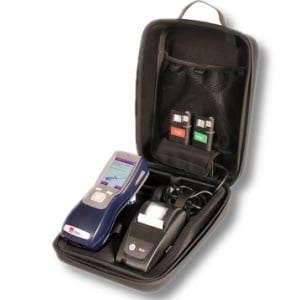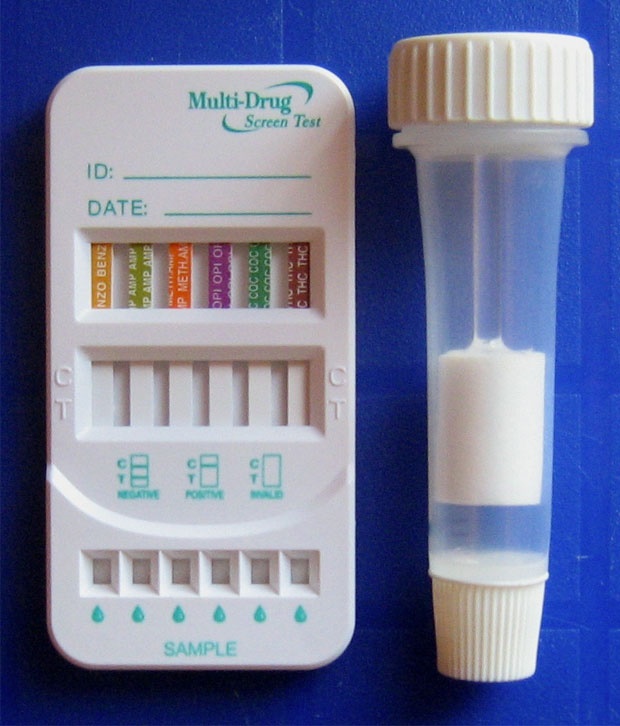
Alcohol and drug abuse, including at work, is a growing problem in South Africa and organisations need to be aware of the consequences on their workforce.
In addition to the Operational Health and Safety Act (OHSA) specifying a zero tolerance approach to substance abuse in the workplace, drug use in the workplace is major source of liability for organisations in many industries.
Today all organisations need to have a no-drugs policy in place which is declared to their employees and enforced by means of drug testing. The goal should always be the employees wellness.
Traditionally, drugs are tested by taking a urine sample, but that is not always convenient, especially for women. Saliva testing kits could change all that.
Benefits of saliva testing
Saliva drug testing, using a special kit, is a simple and convenient solution, using a swab that is held in the mouth, and can be done anywhere and at any time.
Results are produced in minutes, and the tests can be used to screen for alcohol, prescription medications as well as the illegal substances heroin, cocaine, marijuana (dagga) and methamphetamines (tik).
Unlike urine testing, there are no privacy concerns, and a male or female tester can test both male and female subjects.
Read: DIY Drug tests: some facts
If a company has a saliva testing protocol in place, it could help employees who have a drug problem face up to the consequences of drug abuse and is an easy way for a company to start implementing effective drug testing processes.
Read more on drug testing and the law from Drug Testing Africa and Deloitte Legal
Q & A about drug testing at work:
1. What are the legal aspects of drug testing at work?
Answer: OHSA General Safety Regulation 2A states that every employer has a duty to stop persons from entering or remaining at work if they appear to be under the influence of intoxicating liquor or drugs.
However, a company must have a substance abuse policy in place in which it describes the need for drug and alcohol testing as well as the scenarios when such testing would be implemented. Such as random testing, suspicion based testing and post-accident testing.
If a company wants to start introducing testing when they haven’t tested in the past, they will have to inform employees in advance of their intentions to start alcohol and drug testing.
Normally this would be done a month or two before the implementation of the testing programme.
2. Does an employee have the right to refuse a drug test?
Answer: Drugs in the workplace are never a good thing and even if you have random drug searches and random drug testing in an employee's contract, you can't actually force them to take a drug test. They do have the right to refuse.
So, while you can't force your employee to take a drug test, most substance abuse policies will state that a refusal to take the test will be seen as admission of guilt and you would have to a very good reason as to why you would not undergo the test and why you did not bring up your refusal to cooperate with testing when you were first employed or the policy was put into place.
In most cases a commissioner will rule that the employee gave up their opportunity to prove that they were innocent by refusing to undergo the test.
3. Do saliva tests also test for the presence of dagga?
Answer: Yes they do test for dagga. A simple six-drug screening panel tests for the common illicit drugs of Amphetamines (khat), cannabis (dagga), heroin, cocaine and methamphetamines (tik, ecstasy and crystal meth) as well as benzodiazepine compounds, which are generally used in prescription anxiety medication and commonly abused.
New drugs, such as Nyaope, a mixture of low-grade heroin, often cut with anticoagulant compounds (typically rat poison) or prescription antiretroviral medication, and tik, a methamphetamine-based drug cocktail, will also be detected when using this test.
4. Where can employers get saliva kits and what are the approximate costs?
Answer: Saliva testing kits are rapidly growing in popularity. They are seen as a fairer test alternative to urine testing as they have a short window of detection after the drug was last used.
This means that in most instances you would normally detect addicts rather than occasional recreational users. They don’t give positive results for drugs that were used numerous days ago but rather for drugs that have been used in the last 24 to 36 hours.
ALCO-Safe supply a range of superior equipment for drug screening tests, including drug screening devices which screen for drugs in saliva, urine, powder, solids and resins. These products, according to Rhys Evans, director at ALCO-Safe, will stand up in disciplinary and CCMA cases.
Drug Testing Africa also offer a range of drug testing kits for corporates - the prices are available upon request.
Generally, the kits range in price from R20 and R120 depending on the number of drugs tested for in a test cartridge.
Image: Multi-Drug screen test from Drug Testing Africa
Read more:
New drug test hits the shelves
New drugs-cheat test developed




 Publications
Publications
 Partners
Partners











